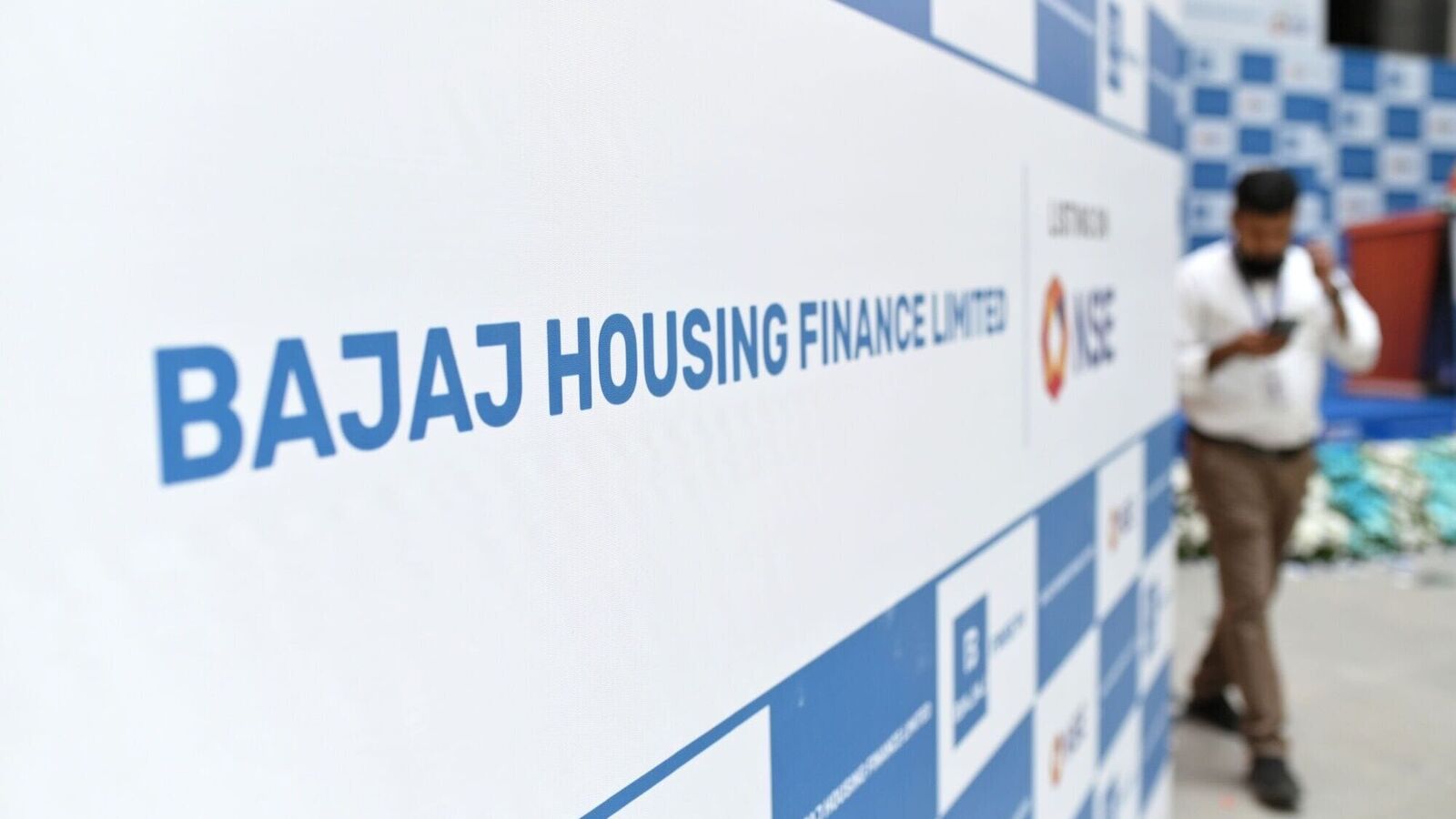With rapid money creation, global risk and mature business approach, the founders are no longer manufacturing companies – they are thinking of heritage. Trust and estate structures are receiving tractions as a device for the future against smart succession schemes, asset protection, and taxes and legal uncertainties.
New-era entrepreneurs who want more control, clarity and continuity of how their wealth lived, which used to be a playbook for old-affected families.
The founders are now thinking beyond development. They are asking: how do I preserve it? How do I pass it smoothly? It is about protecting the family disputes, future uncertainty and business risks, protecting it.
The conversation around the trusts recently revived the Indian cricketer and investor after the lifestyle brand Chequmate Yuzvendra Chahal was separated from his wife. Ansuman Singh, a lawyer of the Supreme Court, said that the family trust of Chahal helped to mount the major assets at the legal risk. As part of the disposal, Chahal agreed to pay allegedly 4.75 crores in alimony.
Startup valuation, initial public offerings and high-profile exit bouncing has created a wave of new accumulated money, Singh explained. Nithin Kamath of Zeroda has publicly emphasized the importance of long -term money scheme, even if the details of their trust arrangements are not public.
“This is not just the case of Yuzvendra Chahal,” said Prachi Srivastava, the founder of Vakil Wait. “We have seen the founder of a D2C making a trust, which is played after a high-profile family quarrel, LinkedIn and a mother-in-law’s founder ringfaeing shares are played after a breakup with co-founder Partner.”
Peace of mind
He said that startups are no longer side hustles, they are generational assets. Equity, intellectual property, brand deals and stock options do not sit neatly in a locker – and founders feel that personal life disturbance may be leaked in their cap table if left unnecessarily, he commented.
A prominent driver is a desire among startups and IPO-bound founders to reduce potential family disputes-he is the internal tension, separation or anything that can complicate the transfer of money, the head of Neha Pathak, Trust and Estate Planning explained, Motel Oswal in private money. “The purpose is to ensure a smooth handover and eliminate any friction before it arises.”
“Another big factor is risk,” he said. Startups, by nature, are high-day undertakings and the founders are rapidly ensuring that if something is wrong in the business, their personal property remains preserved. Trust and estate planning gives them that significant separation and peace of mind.
The real question is: How does the trust and estate planning actually work behind the curtain to protect money? How does it mold founders from risks, and which mechanisms make it effective? More importantly, how is it structured to ensure both control and continuity?
Unlike the Wills, which become public, the trusts provide a prudent way to distribute money.
In India, a significant difference between a will and a trust occurs when they are effective and how much control they provide. Only after death one will comes in the game and goes through the probate – a legal process through which the property is passed – in some states, which is a public and sometimes long legal process.
A trust, however, can be installed during one’s lifetime, provides more control over asset delivery, helps avoid probate, and keeps things private. Trusts are particularly useful for complex wealth or when discretion and long -term plan are preferences.
Business Advisory in Waterfield Advisors – Senior Director – Senior Director, Vishal Yeol says, another major reason for protecting his property is to be one step ahead of any possible change in property tax laws.
India introduced property duty for tax inherited money in 1953, but was abolished in 1985 due to low revenue and enforcement challenges. Since then, there is no property or inheritance in the country, although the idea of reviving it revival in policy circles from time to time.
Benefits of security
Explaining how the trust structures help founders to balance control and ownership, Yeol said the founder’s share can be transferred to a trust, with the founder becoming a trustee. So, while they no longer “” themselves “on paper”, they still have one.
Meanwhile, another major benefit, Jole, stated that the trust assets are usually preserved, until it is proved that the transfer was done purely to dodge fraud or legal claims.
Often, the biggest concerns come from within the family. The founder does not want their hard work to be caught in internal disputes, especially during incidents like separation or divorce.
Startup founders often ignore trust planning – until the individual drama caps hits the table. Ripling co-founder Prasanna Shankar made public publicly public during a detention battle, extending the alarm about control and stability. In Mu Sigma, Dhirj Rajaram avoided chaos after the stake of former wife Ambiga, but left a trust structure.
Shopclues’ Sandeep Aggarwal accused his cofounder wife Radhika, ignoring a public conflict on credit and control, excluded her. And in Zoho, the founder Sridhar Vambu was quietly accused of transferring the family’s property to the family, triggering questions around ownership and transparency.
Whether the absence of divorce, dispute over control, or succession challenges, the absence of structured trust planning can also leave the most successful startup.
“Many founders prefer to install a private trust structure,” the reader explained. “Why? Because it is intimate, controlled and allows them to ring assets from both external hazards and internal complications. Trust deed may include specific provisions that are occupying the business, who have something with the founder and how the ownership passes.”
A common approach is nominating children as beneficiaries, while deliberately leaving the children’s spouse. It helps to avoid claims during potential divorce or disputes and keeps money within money.
Disruptive money
Even any decision can underline rights, voting rights and conditions of distribution – all are in line with the sight of the founder.
Pathak shared an example of a garment construction startup for an IPO. To manage upcoming assets, founders set up several trusts – some offer immediate payment to family members, designed to distribute staggered to others, and some structured especially to repay key lenders.
This idea was simple: ensure responsible use of money and avoid family members with sudden winds.
“You don’t want new money to disrupt life or decency of breed,” the reader said.
A founder had two clear goals: they were closely connected to the child with their special needs to gain lifetime care and support the charity. They wanted these schemes to continue basically, even if they are not around. But there was another important concern: privacy.
The founder said, “I do not want the world to know what I have or who is receiving what.” Therefore, an important part of his property was transferred to trusts – care, contribution and complete privacy.
Supreme Court advocate Tushar Kumar said that preparing the trust deed should be accurate, strong and sewn, clearly demarcated trustee powers, beneficiary rights and contingencies.
Kumar said, “Judicial laws related to stamp duty and registration should be responsible for avoiding unknown tax liabilities, especially in relation to real estate.”
Perhaps the most important thing is that it should be taken care of to ensure that the trust of the Trust does not struggle with the individual law, especially in matters related to intestinal succession or claims under the Hindu Succession Act or Muslim Personal Law, he explained.
Sonali Pradhan, the head of wealth planning at Julius Bare India, pointed to an important but often unseen angle – the founders can face claims not only from investors or regulators, but also from employees or consumers. If there is any deficiency in compliance with the founder, the first step by regulators or courts is often to freeze its bank and demat accounts. For a listed company, it is not just a personal hit – it can send severe shockwaves to shareholders and other stakeholders.
Abrupt death
He also said how an increase in sudden untimely deaths has reconsidered many startup founders on time of heritage plan practice. He shared an example of a young, founder of unmarried e-commerce, who has seen rapid money creation.
His concern? To ensure that he is a clear, thoughtful plan to manage and deploy that money even after leaving.
Epigamia co-founder Rohan Mirchandani died unexpectedly due to a heart attack in December. In August 2023, 51-year-old Ambaresh Muri, co-founder of online furniture platform Paperfree, succumbed to a heart attack.
In December 2021, Pankhuri Srivastava lost his life for the arrest of a heart, 32-year-old founder of rental startup Grabhouse and 32-year-old founder of female-centered Manch Pankhuri.
These incidents have inspired many young entrepreneurs to seriously plan and protect their money.









